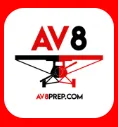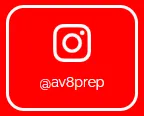Unexpected and Hidden
Expenses for Pilot Training
Becoming a pilot is a dream for many, but it often involves significant costs that go beyond the obvious expenses like flight school tuition and aircraft rental fees. To help aspiring pilots better prepare for their training journey, this article will shed light on unexpected and hidden expenses associated with pilot training. By understanding and planning for these costs, you can ensure a more realistic and well-prepared budget.
Medical Examination and Certification
One of the first hidden expenses that aspiring pilots may encounter is the cost of a medical examination and certification. All pilots, whether they are pursuing a private pilot's license or a commercial one, are required to undergo a medical evaluation by an FAA-authorized Aviation Medical Examiner (AME). The AME will determine whether you meet the medical requirements to hold a pilot certificate. The cost of the examination varies depending on the AME's fees, location, and the type of examination required (first, second, or third-class medical certificate). It's essential to budget for this initial medical evaluation as it's a non-negotiable expense in the pilot training process.
Books and Study Materials
Ground school is a crucial component of pilot training, and it comes with its own set of expenses. You'll need to purchase textbooks, study guides, and other educational materials to prepare for the written exams and acquire a solid understanding of aviation theory. The cost of these materials can add up, so be sure to include them in your budget.
Written Exam and Practical Test Fees
To obtain a pilot's license, you must pass both written and practical exams. Each of these tests comes with its own set of fees. The written exam is typically administered by the FAA or an FAA-authorized testing center, and you'll need to pay for the exam itself. The practical test, also known as the checkride, involves a fee paid to the designated pilot examiner (DPE) who evaluates your flight skills and knowledge. These fees are often overlooked but can be substantial, so budget accordingly.
Headset and Flight Gear
Aviation headsets are a necessary tool for communication during flight training and future piloting. These headsets can range from a few hundred dollars to over a thousand dollars, depending on the brand and features. Additionally, you may need other flight gear such as a flight bag, kneeboard, charts, and navigation tools. These items can add a considerable expense, so factor them into your budget when planning for pilot training.
Ground School Tuition
In addition to flight school tuition, aspiring pilots need to account for ground school tuition. Ground school covers the theoretical knowledge required to become a pilot, and the cost varies depending on whether you choose to attend an in-person class or opt for an online course. Make sure to consider this cost when budgeting for your overall training.
Aircraft Rental Insurance
Aircraft rental fees are a well-known expense in pilot training, but there's another layer to this cost that is often overlooked: aircraft rental insurance. Most flight schools require you to carry renter's insurance to cover potential damages to the aircraft during your training flights. The cost of this insurance can vary based on factors like the flight school's insurance requirements and the type of aircraft you'll be flying.
Flight Hours Beyond Minimum Requirements
While flight schools often provide training packages based on minimum FAA-required flight hours for a particular pilot certificate, many students end up flying more hours than the minimum to build the skills and experience necessary to pass their practical test. Each additional hour of flight time comes with rental costs, fuel expenses, and instructor fees. Be prepared for this potential overage in your budget.
Navigation and Charts
Pilots must rely on various navigation tools and charts to plan and execute flights safely. These tools include sectional charts, navigational logs, and navigation equipment (like GPS devices). The costs of these items can accumulate, so make sure to account for them when planning your training budget.
Fuel Costs
While aircraft rental fees often include the cost of fuel, it's important to keep an eye on fuel prices. If you're responsible for covering the cost of fuel separately, fluctuating fuel prices can affect your overall expenses. Additionally, during cross-country flights, you may need to account for fuel stops, which can lead to increased expenses.
Travel and Accommodation
If your flight school is not located near your residence, you'll need to budget for travel and accommodation expenses. These costs can vary greatly depending on the distance you need to travel and the length of your stay. Consider transportation, lodging, meals, and other incidental expenses when planning for this aspect of your pilot training.
Landing and Ramp Fees
During cross-country flights, you'll often land at different airports, and some of them may charge landing and ramp fees. These fees can range from a few dollars to several hundred dollars, depending on the size of the airport and its location. Factor in these expenses when planning your cross-country flights.
Exam Retake Fees
No one likes to think about failing an exam, but it's essential to be prepared for the possibility of needing a retake. In some cases, you may need to pay for retesting, which can add unexpected costs to your budget. It's advisable to allocate a portion of your budget for possible retake fees as a precaution.
Additional Training and Endorsements
Once you obtain your initial pilot's license, you may wish to pursue additional endorsements and ratings, such as instrument, multi-engine, or seaplane ratings. These add-on certifications often require further training and testing, which come with their own associated costs. Plan for these expenses if you intend to expand your qualifications beyond the basic pilot certificate.
Aircraft Maintenance and Unexpected Repairs
While flight schools are responsible for maintaining their training aircraft, unexpected maintenance issues can still arise. While the school should cover these costs, it's essential to have a financial buffer for unexpected maintenance or repair expenses, especially if you're renting aircraft independently.
Annual Membership Fees
To access certain aviation resources or join pilot organizations, you may need to pay annual membership fees. These fees can include access to online pilot resources, discounts on aviation-related products, and networking opportunities within the aviation community. While these fees may not be exorbitant, they are worth considering in your overall budget.
HOW TO BECOME A PILOT!
Get your free e-book with your email
Enter your email address to get your E-Book.

Conclusion
Becoming a pilot is an exciting and rewarding journey, but it's crucial to be aware of the unexpected and hidden expenses that can arise during pilot training. By incorporating these often-overlooked costs into your budget, you can better prepare for the financial aspects of your training and reduce the likelihood of financial surprises along the way. Careful planning and financial discipline will help you stay on course and achieve your dream of taking to the skies.
Elevate Your Skills with AV8 Prep Online Ground School Pilot Education Program
Are you ready to soar to new heights in the world of aviation? Look no further than AV8 Prep's cutting-edge Online Ground School Pilot Education Program.
Enroll Now and Take Flight Toward Your Dreams.
Whether you're aiming for a career in piloting or seeking to expand your horizons into drone operations, AV8 Prep's Online Ground School Pilot Education Program has got you covered. Join our community of aspiring aviators today and get ready to embark on an educational journey like no other.
Testimonials

Matt B.
I can't thank AV8Prep enough for their exceptional Private Pilot Ground School program. With their comprehensive curriculum and knowledgeable instructors, I was able to achieve a remarkable score of 93 on my written exam. The engaging content, interactive lessons, and in-depth explanations truly prepared me for success. AV8Prep's dedication to ensuring their students' understanding and mastery of the material is unmatched. I highly recommend AV8Prep to anyone pursuing their private pilot license. Trust me, it's the best investment you can make in your aviation journey.

Tony D.
I was pleasantly surprised by the exceptional quality of the Private Pilot Course! Within a brief timeframe, I acquired all the essential knowledge and skills required to obtain my private pilot certification. The instructors demonstrated extensive expertise, the course material covered everything comprehensively, and the support offered throughout was truly remarkable. Without hesitation, I enthusiastically endorse this course to anyone seeking to embark on a professional drone piloting journey. It's a worthwhile investment that yields significant returns!

John. C
I owe my success in passing the written FAA exam with a remarkable 97% to AV8Prep's exceptional online ground school. Their comprehensive resources and effective teaching approach made the learning process engaging and ensured I was well-prepared for the exam. I highly recommend AV8Prep to anyone seeking a reliable and effective way to ace their pilot exam.
Financing Options, Loans, and Scholarships for Pilot Training
Tips for Future Pilots on Budgeting
%20(1).webp)
.webp)
.webp)
%20(1).webp)

Home Office
8669 Ridge Road
Melrose, Florida
Home Airport:
Jacksonville Executive (KCRG)
@2025 Aviate Prep
Privacy Do Not Sell My personal Info Terms & Conditions Imprint Accessibility Statement
Privacy
Do Not Sell My personal Info
Terms & Conditions
Imprint
Accessibility Statement

